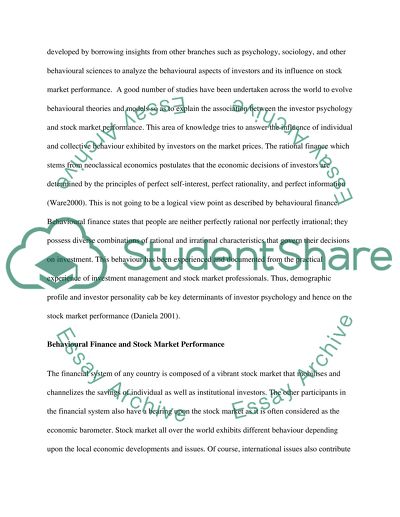Cite this document
(The Influence of Behavioural Finance on Stock Markets Case Study, n.d.)
The Influence of Behavioural Finance on Stock Markets Case Study. Retrieved from https://studentshare.org/finance-accounting/1554090-what-contribution-has-behavioural-finance-make-to-the-explaination-of-stock-markets-bubbles-and-crashes
The Influence of Behavioural Finance on Stock Markets Case Study. Retrieved from https://studentshare.org/finance-accounting/1554090-what-contribution-has-behavioural-finance-make-to-the-explaination-of-stock-markets-bubbles-and-crashes
(The Influence of Behavioural Finance on Stock Markets Case Study)
The Influence of Behavioural Finance on Stock Markets Case Study. https://studentshare.org/finance-accounting/1554090-what-contribution-has-behavioural-finance-make-to-the-explaination-of-stock-markets-bubbles-and-crashes.
The Influence of Behavioural Finance on Stock Markets Case Study. https://studentshare.org/finance-accounting/1554090-what-contribution-has-behavioural-finance-make-to-the-explaination-of-stock-markets-bubbles-and-crashes.
“The Influence of Behavioural Finance on Stock Markets Case Study”. https://studentshare.org/finance-accounting/1554090-what-contribution-has-behavioural-finance-make-to-the-explaination-of-stock-markets-bubbles-and-crashes.


